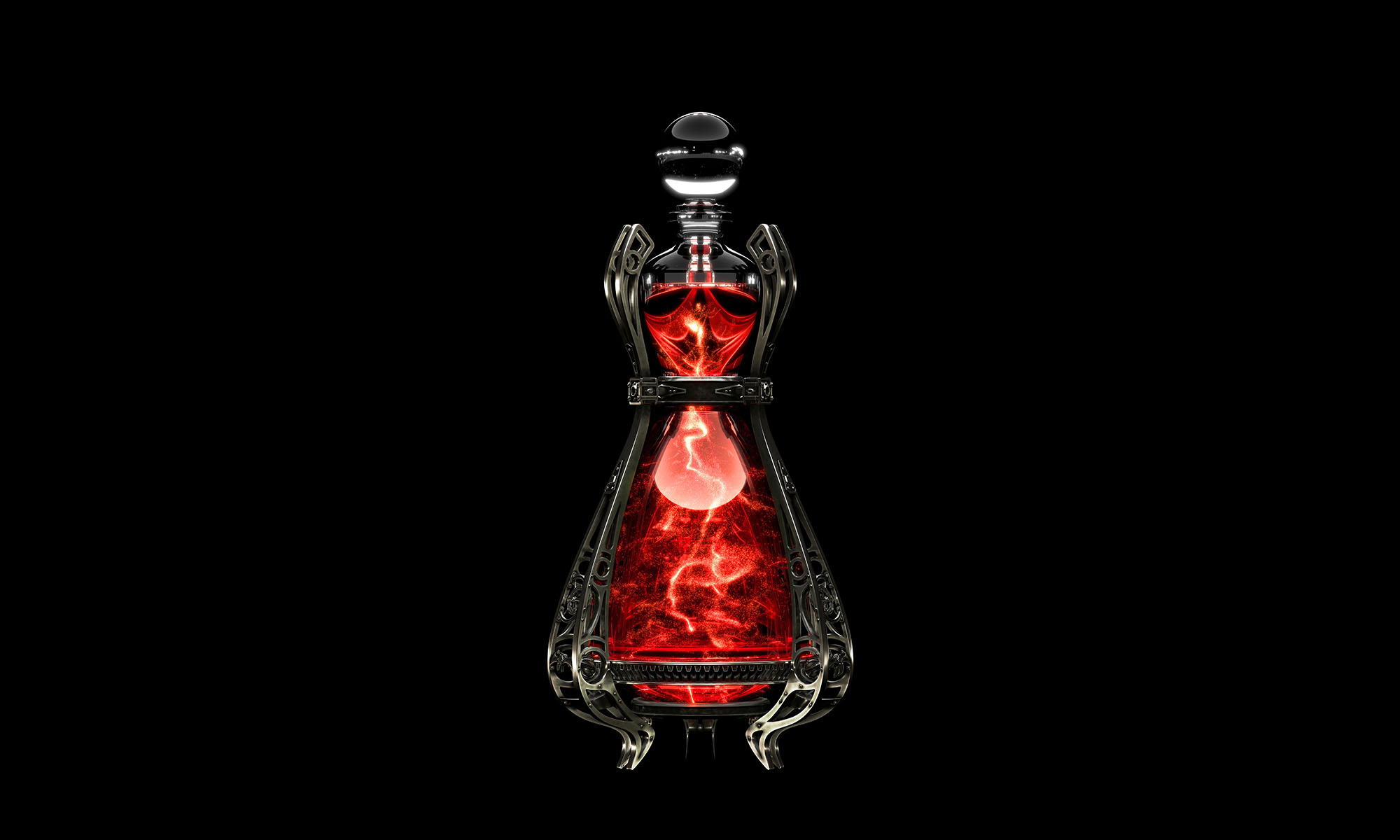
This text, written in Ancient Arathian, is difficult to translate even for one familiar with that dead language, as it contains lengthy, erudite passages featuring complex alchemical terminology using what appears to be a heavily modified version of the long-defunct Sarkasian nomenclature.
ELETRO-ALCHEMICAL DISTILLATION OF ARCANO-CEREBRALITE POTIONS
“The arcanists’ mind – both physical and ephemeral – is laced with the highly potent potential of the vast energies they harness and hook through their personal cerebral cortexes. Like all energies of life, these are not instantly dispelled upon death, but instead dissipate lingeringly over time. If the brain can be harvested in due course and before this final dissipation occurs, the occult energies can be salvaged.”
PRESERVATION: Part of this text describes how an arcanist’s brain can be surgically removed without disturbing the nascent arcane energies of their currently prepared spells (requiring a DC 18 Wisdom (Medicine) check) and then preserved through the use of an alchemical bath (25 gp in material costs, DC 12 + highest spell level to be preserved Intelligence (alchemist’s supplies) check).
PULPING: The rest of the text describes how the brain of a freshly dead arcanist (within 24 hours) or a preserved arcanist’s brain can be pulped using a three-dimensional mortar and pestle in order to create potions from the spells they had previously prepared.
This process is complex, requiring an Intelligence (alchemist’s supplies) check at DC 15 + spell level for each spell withdrawn from the brain. The alchemical supplies cost as much as it would normally cost to brew a Rare potion, but without the need to expend spell slots or meet other prerequisites. The process also only requires one day of effort.
There is no limit to the highest level of spell that can be turned into a potion using this method.
DETERMINING SPELLS: In order to determine exactly which spells were prepared by the arcanist, an alchemist can use a detect thoughts spell and make a separate Intelligence (alchemist’s supplies) check (DC 10 + spell level) for each spell. On a failure, there’s a 25% chance that the spell energies have been disrupted and lost. On a success, the alchemist identifies the spell (which will then allow them to know exactly what the pulped potion they prepare will do).
POTION EFFECT: Brain pulp potions are distinct from other potions due to their eponymous pulpy texture. Drinking a brain pulp potion will either immediately allow the drinker to benefit from the spell’s effect or allow them to immediately use the spell effect as if they had cast it.












What might arcane kuru do to a drinker?
https://en.m.wikipedia.org/wiki/Kuru_(disease)
DCs are a little confusing.
DC 15 +spell level,
DC 12+spell level,
DC 10 +spell level…
was this a typo, or I missunderstood something.
Really cool.
This is cool, and reminds me of an article from several years ago that was kind of creepy/weird/cool, something about where sorcerers get their powers I think? I did a quick search but wasn’t able to turn it up.
But: “three-dimensional mortar and pestle?” All mortars and pestles in my experience are three-dimensional; that seems an odd thing to highlight.
And, I was also thinking about magical prion diseases and how the potions might transmit other effects than the desired spells.
@Francis Torres My guess is that the DCs are ascending in difficulty based on the order in which the alchemist would perform them i.e. DC 10 to first determine what spells are in the brain (is it worth preserving/harvesting?) > DC 12 to preserve it > DC 15 to make a potion of it. I can’t speak for Justin but that’s how I think of it.
What’s the rationale for detect thoughts and alchemist’s supplies to determine what spells are in the brain? I’m not really seeing how alchemist’s supplies would help with that or interact with detect thoughts in that way. Why not detect thoughts and Arcana (I’m reading the lingering energies in the brain and using my knowledge of magic to match the wavelengths and patterns to spells I’m familiar with)?
Making it Arcana would also potentially open the door for another character to participate (in the event that the alchemist is no good at Arcana, which is admittedly unlikely) and also prevents the activity from being completely closed off in the event that the alchemist doesn’t have detect thoughts, but someone else in the party does.
Cool idea for a skill challenge/crafting activity though. I will be sharing it with my players (and probably making the changes I suggested above).
@kalyptein: I like the way you think.
@Francis: It’s easier to do the prep work for a procedure than it is to do the procedure.
@Alex: My mental image of this unorthodox use of detect thoughts is that it involves the brain being strapped into some sort of alchemical contraption (electrodes attached, probes strategically placed). But the argument for getting a different skill involved is a good one and is in-line with my belief that spell + skill is an underutilized mechanic (particularly when it comes to detect spells).
Re: 3D mortars. A traditional mortar-and-pestle mashes material along a two-dimensional plane (the surface of the mortar). Simply imagine an arcane device designed to sample the brain in multiple planes.
” Drinking a brain pulp potion will either immediately allow the drinker to benefit from the spell’s effect or allow them to immediately use the spell effect as if they had cast it.”
… as well as a DC 15 Constitution check against vomiting (DC reduced by one for each brain pulp potion ever consumed) and a DC 10 check against changing alignment to evil, if not before…